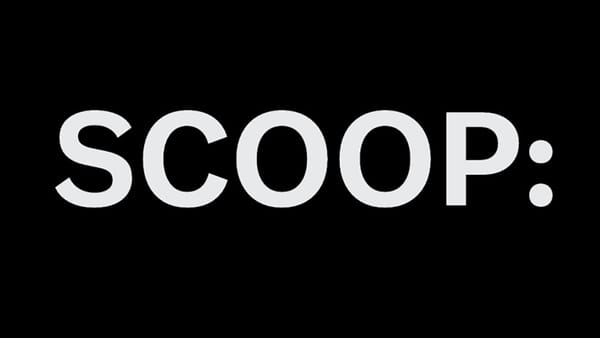Indignity Vol. 2, No. 24: Going negative.
THE WORST THING WE READ THIS WEEK™

Will the Times Ever Learn What an Argument Is?
WHAT IS THE purpose of a short piece of argumentative writing? One purpose of this one would be to try to persuade Kathleen Kingsbury, the opinion editor of the New York Times, and A. G. Sulzberger, the Times publisher, that they published a bad piece Tuesday, and that they should stop publishing pieces like it. In the very likely event that neither Kingsbury and Sulzberger read this article, it aims at least to tell other people at the opinion desk, and readers of the Times, that the Times article was bad, and if they disliked it, it was for good reason.
Those are the broad reasons why I'm writing and publishing this item. But why did the Times publish its opinion piece, a guest article titled "‘Latinx’ and ‘Defund the Police’ Are Driving Latinos to the G.O.P.," by the Republican political consultant Mike Madrid?
Madrid presented his piece as if he were issuing a warning to the Democratic Party, telling them that "Hispanic voters, many of us alienated by progressive labels and mottos like 'Latinx' and 'defund the police,' have been drifting rightward." Democrats and Republicans alike, Madrid wrote, "have consistently failed to understand what motivates Hispanic voters," but his focus was not on the Republicans' failings: "As the Democratic Party drifts away from its working-class roots and emphasizes cultural issues, Republicans are well positioned to pick up these politically untethered voters and with them the reins of power."
Versions of this piece have been running ever since Donald Trump did better than expected among some Hispanic voters while losing the 2020 election. One striking, or telling, thing about this latest account of what motivates this dynamic voting group was, in fact, how static Madrid's argument was. Three weeks ago, in the State of the Union address, President Joe Biden specifically told the assembled Congress and a national television audience, "The answer is not to defund the police." Biden went on: "It's to fund the police. Fund them. Fund them. Fund them with resources and training."
Madrid's account of a party recklessly in thrall to "defund the police" rhetoric did not mention—at all!—that the most powerful Democratic official, the current face of the party, had just used his most high-profile speech to deliver verbatim the message that the party stands accused of failing to deliver. Why? Presumably, if you were writing to encourage the Democratic Party to distance itself from "defund the police," you would acknowledge or even celebrate the fact that the party at its topmost levels is already doing exactly what you’re saying it should do.
Nearly two years after the George Floyd protests, the organized Democratic Party, with the approval of the political press, has driven the idea of defunding the police clear out of the Overton window. The police have more money than ever. In electoral politics, "defund" survives as nothing but a negative trope—and the Times and its opinion section just finished going through an expensive and harrowing jury trial for defamation because its previous editor mistook a negative political trope for a fact.
Yet there was Madrid slinging "defund" around, with so little reference to current conditions I briefly wondered if the article had been an old one dredged up by an algorithm. But it was dated March 22, 2022. It only felt stale.
When Kingsbury took over the top opinion job at the Times, she told the Nieman Journalism Lab she wanted the section to be "a place where debate is elevated and ideas will be pressure-tested and audiences will hear from people they agree and disagree with." A committed pressure tester, reading Madrid's claim that the term "Latinx" is "[c]ommonly used by media, political and academic elites as a sign of gender inclusivity," might have flagged his abrupt substitution of "media, political and academic elites" for "the Democratic Party," or asked him to provide some examples of how common the usage was.
Here is where the theory of the opinion section crashes into the practice. In its mission to expose readers to people they disagree with, the Times opinion desk has a perverse and longstanding habit of lowering its standards for argument, because it conflates annoying the readers with challenging them. The result is ideological tokenism, where Republicans and conservatives are encouraged to argue weakly and insincerely, or outright falsely.
When someone from the Manhattan Institute is allowed to cite car-theft statistics as a sign of rising violent crime, or when the Harvard Law professor Adrian Vermeule is given space to declare that judges should promote the "common good" without forthrightly spelling out the crackpot hard-right morality that he personally deems to be the "common good," or when Bret Stephens links yet again to something that means the opposite of what he claims it means—the problem with the resulting articles is not that they challenge my political sensibilities, it's that they're afraid to challenge them. Adrian Vermeule won't call for theocracy any more than he has to. He'll just waste the Times reader's time and attention.
And then, turning to the readers of a newly launched aggressively hard-right publication, Vermeule can denounce the whole idea of liberal free speech while boasting that "common-good conservatives publish in The New York Times." Something is being elevated through all of this, but it's not the debate.
Likewise Madrid's piece did the work it set out to do—just not the work it claimed to be doing. He raised the specter of "negative partisanship," in which voters line up against a party rather than in favor of the other party, as if he were cautioning the Democrats against a dangerous course of action: "As 'culture' grows as a proxy for 'race,' the electoral math for Democrats will most likely get bleaker as political campaigns continue as referendums on 'critical race theory' and 'defunding the police.'"
It was a notably disembodied set of claims. Is "culture," all on its own, becoming a proxy for "race"? Are political campaigns spontaneously constituting themselves as referendums on "critical race theory" and "defunding the police"? Of course not. No reasonable observer in 2022 could possibly claim, as a factual matter, that Joe Biden's Democratic Party is heading for the midterms behind a plan to tell the voters that a vote for a Democrat is a vote for "critical race theory" and for defunding the police. What the Republican political strategist was describing here were Republican political strategies, to be used against the Democrats.
Or, even more specifically, he was using the Times to use those strategies. Rather than diagnosing a problem for the Democrats, he was being the problem.






